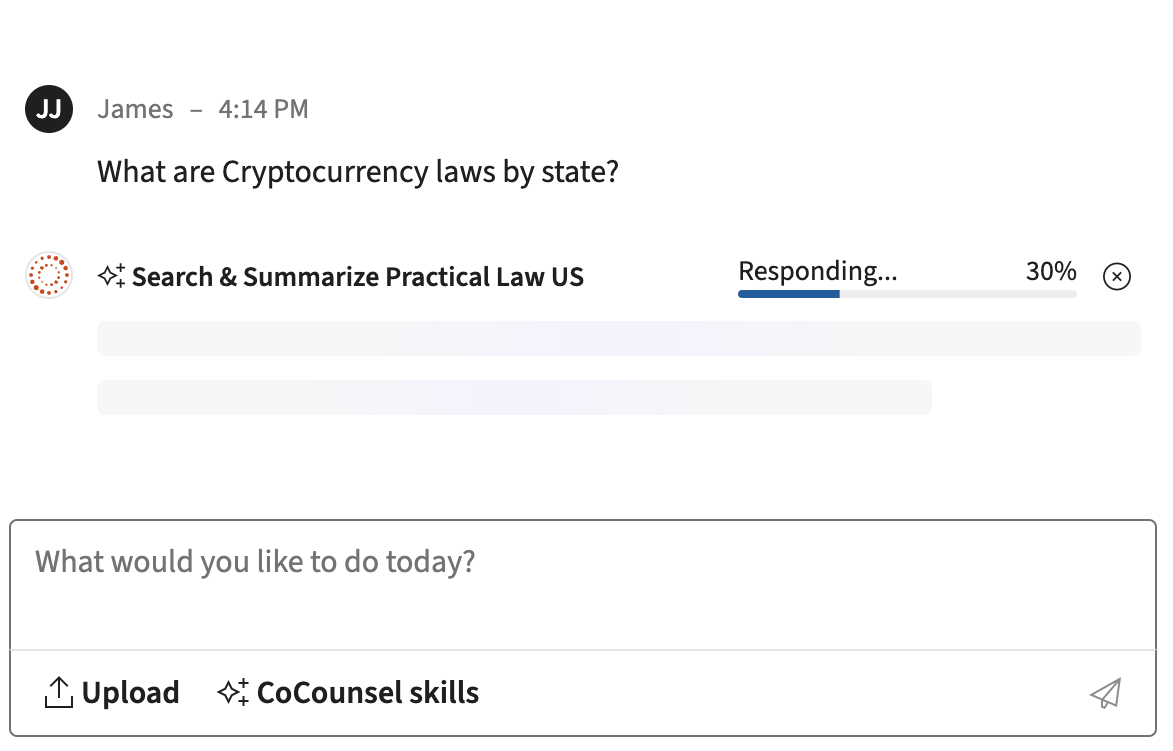Exemptions, terms, requirements, provisions, and more resources for attorneys
Securities law · Regulation D
Highlights
- Regulation D provides exemptions from the registration requirement for private securities offerings.
- Three regulatory exemptions under Regulation D are found in Rules 504, 506(b) and 506(c)
- Such safe harbors are designed to facilitate private capital raising for small businesses.
The US securities regulation requires registration of the securities under Section 5 of the Securities Act of 1933 with the Securities Exchange Commission unless any valid exemption applies. Regulation D serves as a safe harbor exemption from the registration requirement, which is mandatory under Section 5.
Jump to ↓
Important terms and requirements

CoCounsel Legal
Bringing together AI, trusted content, and expert insights for securities regulations
Go professional-grade AI ↗Overview
Regulation D is particularly for enabling startups, emerging companies, and other entities that are looking to raise capital privately, that is, without incurring the cost and burdens of a public offering.
It allows for the issuance of various types of securities, including:
- Equity securities such as common or preferred stock
- Membership interests in LLCs
- Convertible notes
- Simple Agreements for Future Equity (SAFE)
- Promissory notes
“An SEC regulation that exempts certain stock offerings (such as those offered by private sale) from registration under the Securities Act of 1933.”
Black's Law Dictionary
There are three regulatory exemptions under Regulation D which are found in Rules 504, 506(b) and 506(c). These safe harbors were established to help small businesses raise capital. The maximum offering amount under Rule 504 is $10 million in a 12-month period.
Rules 506(b) and 506(c) do not limit the amount of money an issuer can raise in a private placement. The absence of a cap makes Rules 506(b) and 506(c) very important private placement exemptions.
Rule 506(b) and 506(c) differ from each other in terms of:
- Permitted investors
- Information requirement for certain investors
- Verification required of investor status
- Use of general solicitation and general advertising in the offering
Regulation D provides for the terms and conditions to use these registration exemptions.
Exemptions
Among various other exemptions that applies to the mandatory registration with the Securities and Exchange Commission, the most used by issuers for private placements are:
- Section 4(a)(2) of the Securities Act
- Rule 506 of Regulation D provides a safe harbor under Section 4(a)(2)
Section 4(a)(2) exempts from registration transactions by an issuer not involving any public offering. This means that only the specific offer and sale of the securities by the issuer is exempt.
The securities themselves remain restricted and are subjected to resale limitation unless any other exemption applies, such as Rule 144, Rule 144A.
Section 4(a)(2) does not provide for any specific guidance or procedural safe harbors, making it more flexible but also more legally uncertain. Issuers relying solely on Section 4(a)(2) bear the burden of proving that the offering complied with the exemption and is not a public offering.
There is no particular definition for public offerings, but it has evolved through case law and SEC rulings that specify the factors setting out when a transaction is not to be considered as a public offering.
Therefore, in order to reduce the uncertainty of relying on Section 4(a)(2), the SEC adopted Regulation D, which sets out objective criteria that, if met, automatically satisfy the Section 4(a)(2) exemption.
Important terms and requirements
Regulation D revolves the following concepts:
Accredited investor
The definition for Accredited investor is given under Rule 501 which includes high-net-worth individuals, banks, insurance companies, brokers, and trusts, meet specific financial criteria established under the SEC’s Regulation D. The classification of accredited investors influences the disclosure of information obligation and the eligibility.
Limitations on the sale
There are limitations on the sale of the Regulation D offerings as they are deemed to be restricted therefore, the issuers must take reasonable steps to inform the buyers of these restrictions and prevent immediate redistribution or resale.
Bad actor disqualification
Issuers have to ensure that they are not committing any act which is classified as a bad actor disqualification if they are relying on Regulation D. If the issuer or certain covered individuals such as the directors, promoters, or 20% beneficial owners, have committed disqualifying events within a specific look-back back then they may be disqualified under the Regulation D exemption.
General solicitation or advertising
There is a strict prohibition on general solicitation or advertising, which means that there can be no public announcements, social media promotions, or online posting about the offering. However, under Rule 506 (c) general solicitation is allowed, but only if the buyers are accredited and verified.
Provisions
Regulation D offers Safe Harbor exemptions under Rules 504, 506(b), and 506(c), each with distinct limitations.
Rule 504
Rule 504 is limited only to the non-reporting companies that are not investment banks or blank check companies, allowing issuance up to $10 million per year. It permits sales to any investor as there are no limits on the number or sophistication of investors.
Rule 506
Rule 506 is open to all issuers, including reporting and non-reporting companies and allows raising of unlimited capital and permits sales to an unlimited number of accredited investors and up to 35 non-accredited but sophisticated investors. The rule states that there is limited disclosure required for the accredited investors; however, more information and details are mandatory to be given to the non-accredited investors.
Rule 506(c)
Similar to Rule 506, Rule 506(c) is open to all issuers, including reporting and non-reporting companies, and also permits raising unlimited capital. Additionally, general solicitation is allowed; however, it is subject to the mandate that issuers must verify accredited investor status and may only sell to accredited investors.
It must be noted that the securities which are offered under the Rules 506(b) and 506(c) qualify as “covered securities”, exempting them from state-level registration.
The blue sky laws may still apply for Rule 504. However, states may still require notice filings and fee payments.
Resources from Practical Law attorney-editors
Get access to curated resources maintained by our attorney-editors below when you sign up for a free trial.






